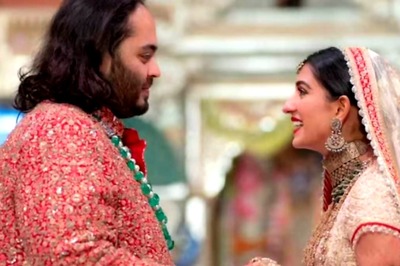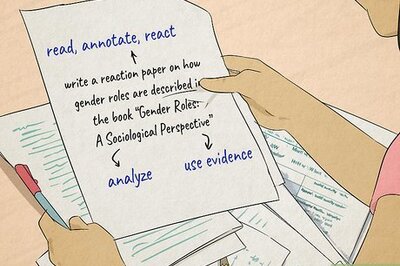
views
THIRUVANANTHAPURAM: ‘Rouge Parole’ may be an uncompromising broadcast of the Arab Spring, the intense civil resistance that rocked the entire Arab continuum. But Elyes Baccar, who made this quintessentially political film, insists he is an existential, not political, filmmaker. “I make films that bring out the meaning of life, the fundamental humaneness in it,” he says. ‘Rouge Parole’ in French means ‘red word’. “It’s a kind of road movie set against the the backdrop of Tunisian agitation chronicling its turbulent realities. It’s about how the Tunisian population has changed from silence to eloquence,” he says. Baccar is one of the new-age filmmakers who candidly documented on screen the reverberations of the Arab revolution. “Earlier, Arab cinema couldn’t attempt certain crucial subjects. Now, with the totalitarian tyranny a matter of past, we have the creative independence to indulge in all the tabooed themes, including politics. The new-born Tunisian cinema speaks about dictatorship and revolt without resorting to any indirect trajectory. Today, artistic expression is unfettered, both in terms of subject and style,” he says. Baccar says nothing can sabotage the spirit of the Tunisian revolution and there is no chance of fundamentalists taking over it. He says his countrymen have developed an extreme alertness during the revolution and they are both aware and analytical of all the changes in political climate. “The French called it ‘Jasmine Revolution’, but for us it’s the ‘Dignity Revolution’ marked by suffering and martyrdom. Tunisian democracy is our high tribute to the revolutionaries and it will not be stolen come what may,” he says. The Arab Spring, the civil awakening in Arab countries, was spearheaded by a crop of artists, writers and filmmakers. Baccar says they joined the revolution after it was flickered to life by a group of commoners who were long suffering under autocracy. “But it was the Tunisian intelligentsia that made the revolution visible to the world outside,” he says. Baccar says the whole population of Tunisia was involved in bringing out the change. He adds that women were equally involved when the storm of revolution broke out. “Through civil movements, they pressurised the government. They played a major role in the revolution, strongly articulating their rights and opinions,” he says. All his films document political turmoils and existential perils browsing through hinterlands. His first film ‘She and He’ is intensely experimental in nature involving just one location and two characters. The protagonist of the film is an absolute recluse whose shell shatters when the other character forces him to face the world. “Both the characters have no credentials, including name and age, indicating the absence of identities,” says Baccar. His other two films, ‘Wailing Wall’ and ‘Pakistan 7.6’, cross the frontier and journey to other equally turbulent landscapes. “I like to touch humanity through my camera and I want to speak about others who are geographically and traditionally far. I like building bridges,” he says.



















Comments
0 comment